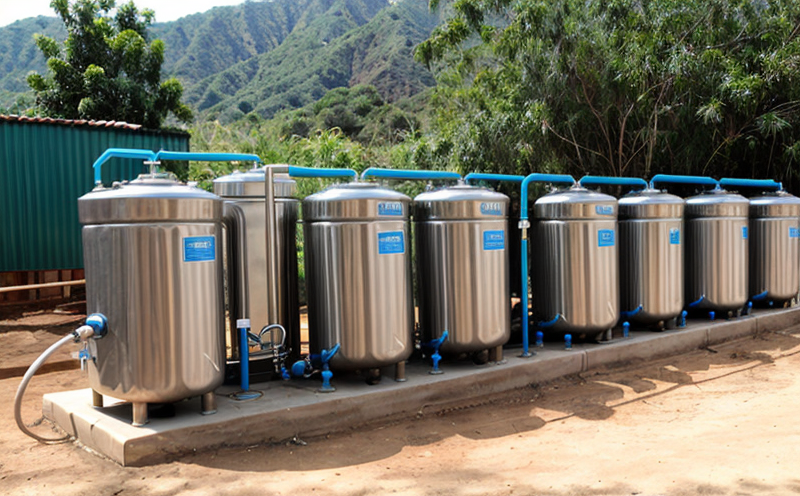APHA 2540D Total Suspended Solids TSS Test in Wastewater
The APHA 2540D method is a standardized procedure used to determine the total suspended solids (TSS) content in wastewater samples. This test is essential for environmental monitoring and compliance with regulatory standards set by agencies like the U.S. Environmental Protection Agency (EPA).
Wastewater containing high concentrations of TSS can lead to significant ecological damage, including oxygen depletion in aquatic environments due to the decomposition process. Understanding the suspended solids content helps in managing water treatment processes effectively. The APHA 2540D method is widely used by laboratories and quality control teams in sectors such as municipal water utilities, industrial wastewater management, and environmental consulting firms.
The test involves filtering a known volume of water through a pre-weighed filter membrane. The membrane is then dried to a constant weight at 103°C ± 2°C. The difference between the initial and final weights provides an accurate measure of TSS content in milligrams per liter (mg/L).
This method ensures precision and accuracy, making it suitable for various industries including municipal water utilities that need to ensure clean drinking water meets regulatory standards.
The APHA 2540D procedure is specified in the American Public Health Association (APHA) Water Quality Manual. This manual provides comprehensive guidelines for water and wastewater testing, ensuring that laboratories follow consistent procedures which are critical for reliable results.
Our laboratory adheres strictly to this method, using calibrated equipment and experienced staff to ensure accurate TSS measurements. Compliance with APHA standards ensures confidence in the test results, supporting regulatory compliance and environmental stewardship.
Benefits
- Compliance Assurance: Ensures adherence to local, national, and international water quality regulations.
- Precision: Utilizes standardized methods like APHA 2540D for consistent results.
- Environmental Protection: Helps in monitoring and managing the ecological impact of wastewater discharge.
- Data Reliability: Standardized testing protocols provide reliable data for informed decision-making.
The APHA 2540D TSS test is critical for industries that rely on clean water resources, such as municipal utilities and industrial facilities. By providing accurate and consistent results, this method supports sustainable practices and regulatory compliance.
Industry Applications
The APHA 2540D Total Suspended Solids Test finds extensive application in various sectors:
- Municipal Water Utilities: Ensures the quality of drinking water by monitoring TSS content.
- Industrial Wastewater Management: Helps manage industrial discharge to meet environmental standards.
- Environmental Consulting Firms: Provides data for environmental impact assessments and remediation projects.
In municipal utilities, the test ensures that drinking water meets stringent health and safety standards set by regulatory bodies. For industrial users, it helps in preventing potential fines and penalties from non-compliance with discharge limits. Environmental consulting firms use these results to inform their clients about the ecological impact of wastewater discharge.
Quality and Reliability Assurance
The quality and reliability of TSS tests are critical for ensuring accurate data that supports regulatory compliance and environmental protection. Here’s how we maintain high standards:
- Calibrated Equipment: All equipment used in the test is regularly calibrated to ensure accuracy.
- Trained Personnel: Our staff are highly trained and certified to perform these tests according to standard procedures.
- Quality Control Checks: Each batch of samples undergoes quality control checks before analysis. This ensures that any deviations in results can be identified and corrected promptly.
- Standard Operating Procedures (SOPs): We follow strict SOPs for every step of the testing process, from sample collection to final reporting.
- Duplicate Samples: Duplicate samples are tested whenever possible to ensure consistency in results.
The APHA 2540D method is robust and reliable when followed correctly. Our commitment to quality ensures that clients receive accurate TSS measurements, which are crucial for making informed decisions about water treatment processes and environmental management.





